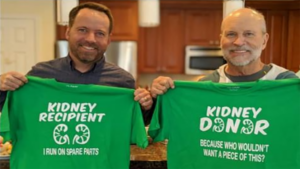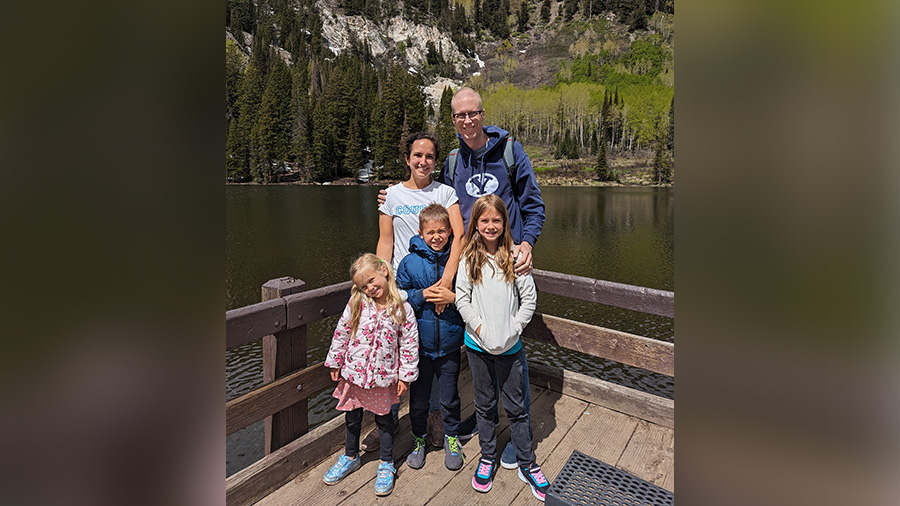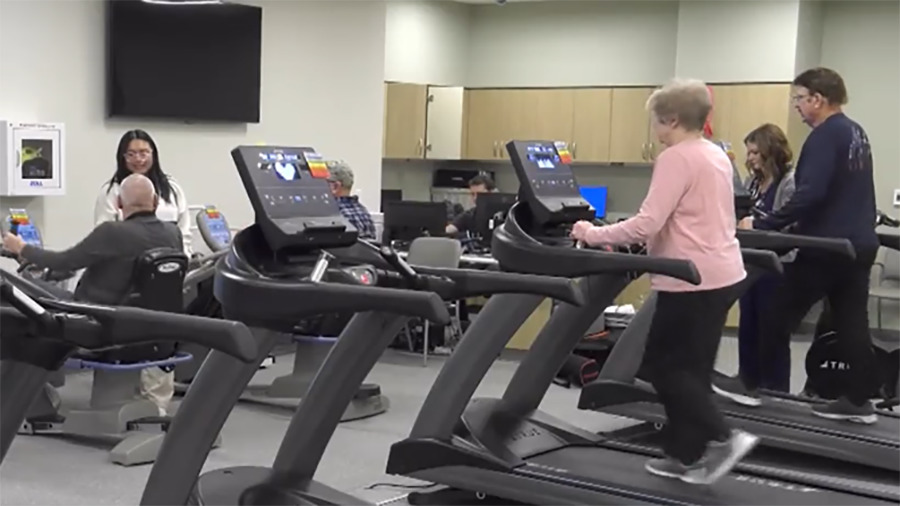‘Listen to your body’: Transplant survivor shares story for World Kidney Day
Mar 14, 2024, 4:54 PM | Updated: 5:44 pm
MURRAY – It’s often called the silent killer; Kidney disease affects one in seven adults, and nine out of 10 are not aware they have it.
“It can affect a lot of us without our knowledge, without any signs and symptoms,” said Dr. Gopal Chemiti, a nephrologist with Intermountain Kidney Services.
Your kidneys are vital fist-sized organs located in the middle of your back, their primary function is to clean and filter blood.
“They’re also important to maintain your bone health and also help you maintain your hemoglobin, which is responsible for carrying the oxygen throughout your body,” Chemiti said.
Chemiti said those with diabetes or high blood pressure are most at risk for chronic kidney disease. Other risk factors include old age (60+), history of heart issues, family history of kidney problems, obesity, and smoking.
Warning signs of kidney disease include:
- Foamy urine
- Frequent urination
- Nausea
- Sleepiness
- Loss of appetite
- Weight loss
“Early detection is a key in the management of chronic kidney disease,” Chemiti said.
Controlling your blood pressure and diabetes, and keeping a healthy lifestyle – including drinking lots of water – can help prevent kidney disease.
Chemiti said long-term use of pain medications, like ibuprofen or naproxen, can damage your kidneys.
When kidney disease advances to stage 5, the only way to treat it is through dialysis or a transplant – but unfortunately, not everyone is eligible.

The kidney Brady Dransfield received from his father, Scott has exceeded its 15-year life expectancy. (Courtesy: Brady Dransfield)
Brady Dransfield was one of the lucky ones. He was just 21 years old when he found out his kidneys were failing due to a birth defect. Luckily, his father was a match and was able to donate a kidney to his son.
“I’ve had this additional extra, I guess, bonus life that I’ve been given,” he said. “And every day is a blessing.”
Now, a father of three himself, Dransfield keeps a careful eye on his kidney health – at the time of his transplant, he was told his new kidney would last 10-15 years. He’s far surpassed that – approaching the 30th anniversary of his transplant – which he said is thanks to his doctors and his focus on an active lifestyle.
“My wife and I try to get out and walk as much as possible, and we try to eat as healthy as possible,” he said. “I have a sweet tooth, so every now and then, I’ll have a bowl of ice cream! But I still pay very close attention to my numbers and where I am as a transplant patient.”
Dransfield spends his time helping raise awareness. He volunteers with the National Kidney Foundation and works for Donor Connect, an organ procurement organization.

Brian Dransfield and his family (Courtesy: Brian Dransfield)
“Be aware of your health. Get regular checkups,” he said. “I’ve learned after having the transplant, really listen to your body and know what’s going on and be your own doctor for your health.”
Intermountain Health offers a kidney risk score: a simple blood and urine test that estimates your risk of kidney failure in the next five years. Talk to your doctor if you want to get tested for kidney disease.
The National Kidney Foundation also has a free, online self-screening tool. You can take the test at www.minuteforyourkidneys.org.












